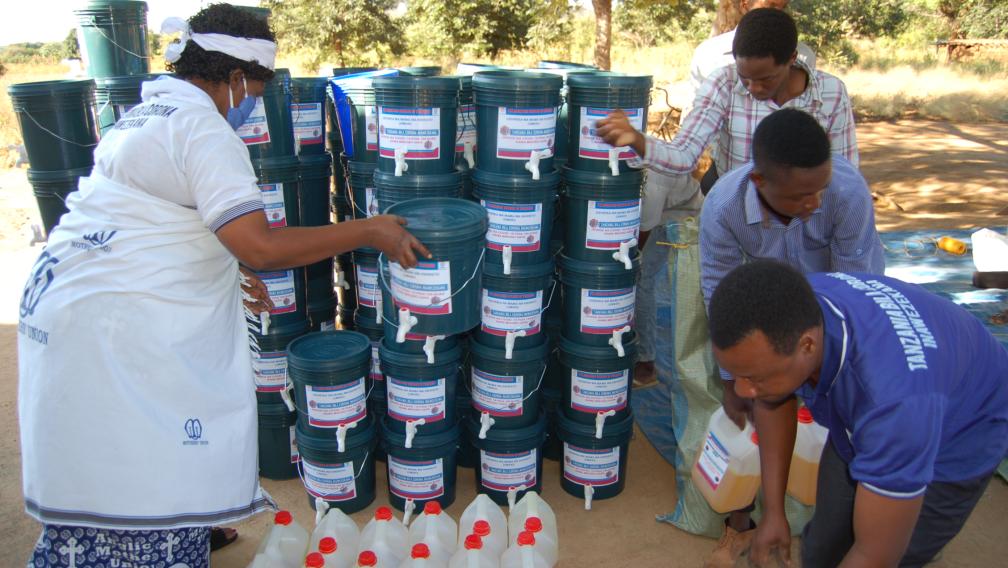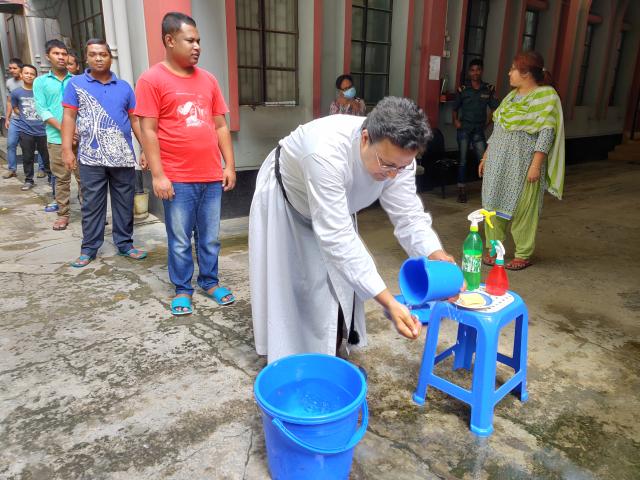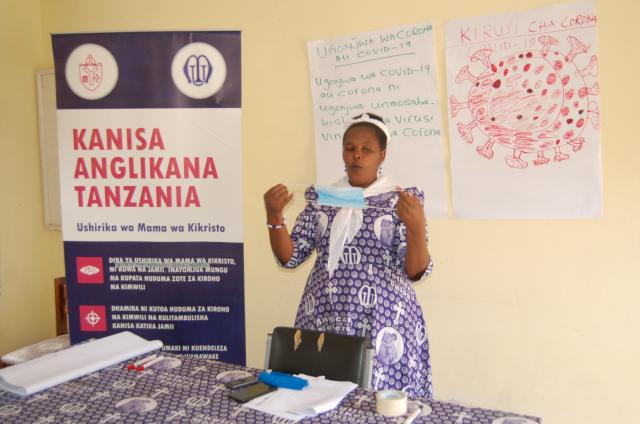Eighteen months ago, Episcopal Relief & Development issued its first round of COVID-19 emergency response grants. 18 months ago, the pandemic was considered a short-term global health crisis. 18 months ago, the idea of a second, third, and now fourth waves of the virus seemed alarmist. Yet, here we are—4.63 million reported deaths and over 108 million additional people considered extremely or moderately poor relative to 2019. All in 18 months and the pandemic is far from over.
With new variants emerging that have serious consequences for virus transmission and health impacts, and with the potential threat to vaccine efficacy, urgency in our response to COVID-19 remains necessary. Over the last 18 months, and in partnership with Trinity Church Wall Street, our emergency response has reached over 2.1 million people in 38 countries through COVID-19 prevention and control messaging campaigns, food and cash transfers, distribution of personal protective equipment and handwashing materials, support to survivors of gender-based violence, and pastoral and staff care. As we continue our efforts, together, we focus efforts on relief, yes, but also on key drivers of resilience.
The frontlines are trapped in a cycle of disaster
Subsequent waves of cases, renewed lockdowns, and a second year of profound disruption is contributing to the widespread emergence of serious mental health challenges. People, particularly frontline workers such as medical staff, clergy, and humanitarian workers, are trapped in various phases of the emotional life cycle of disaster. While the start of the pandemic saw heroic, unifying efforts to mobilize, as the pandemic wears on, we see increasing incidences of disillusionment, hopelessness, and understandable grief. While all continue to care for those affected, we are also working to ensure care for the caregivers is regular and systematic. For example, in Malawi, the church is partnering with the Ministry of Health to equip parish and community leaders and health workers with counseling skills and to give them resources for referring participants and supporting one another.
Disparities are growing
Emergency response efforts need to do more to reach hard-to-reach populations and geographies that do not have access to country schemes either due to geography (remote or hard-to-reach areas), personal status (migrant workers, refugees), or access to technology in an increasingly digital world. The pre-existing inequalities have only become exacerbated over the past 18 months of the pandemic. Be it Colombian indigenous populations who are unable to access government schemes or Kenyan residents in informal under-served settlements or foreign domestic workers in Lebanon who are left with little rights, our local partners are intentional about assessing needs so that they target support to the most marginalized and vulnerable.
Response efforts must remain fluid and contextually appropriate
In this challenging environment, Episcopal Relief & Development and our local partners are actively working to provide emergency relief to address new waves while also working in countries to reduce the secondary impacts through locally-led, sustainable, and coordinated responses to address food insecurity and violence against women and girls. In the Philippines, our partner E-CARE Foundation established the Resiliency Fund to guarantee local agricultural markets, and provide emergency livelihood grants to households using longer pay-it-forward time periods without add-on repayment conditions.
There is a growing realization that while vaccinations are vital to a comprehensive long-term response, vaccines are not a panacea for what has happened under the COVID-19 pandemic. Emergency response and resilience programming cannot be separated. Health and economic effects are interwoven and interlayered. Within our responses, we must continue to invest in families as they weather the long-term economic impacts of the pandemic, even as we actively advocate and mobilize for vaccine access. We can do this by strengthening community-level mechanisms, particularly building and supporting local market systems, while collaborating with local government agencies to mobilize services for hard-to-reach populations.
The writer of the Letter to the Hebrews reminds us, “Now faith is the assurance of things hoped for, the evidence of things not seen.” Despite unprecedented challenges, we are seeing this faith in how we care for each other, how swiftly and lastingly we and our partners have mobilized to reach isolated communities, and how committed we are to ensuring resilience in the face of massive system disruption. We are so grateful to partners like Trinity Church Wall Street for their faith, support, and accompaniment. Together, Episcopal Relief & Development and its global implementing partners are making a vital and lasting impact.


